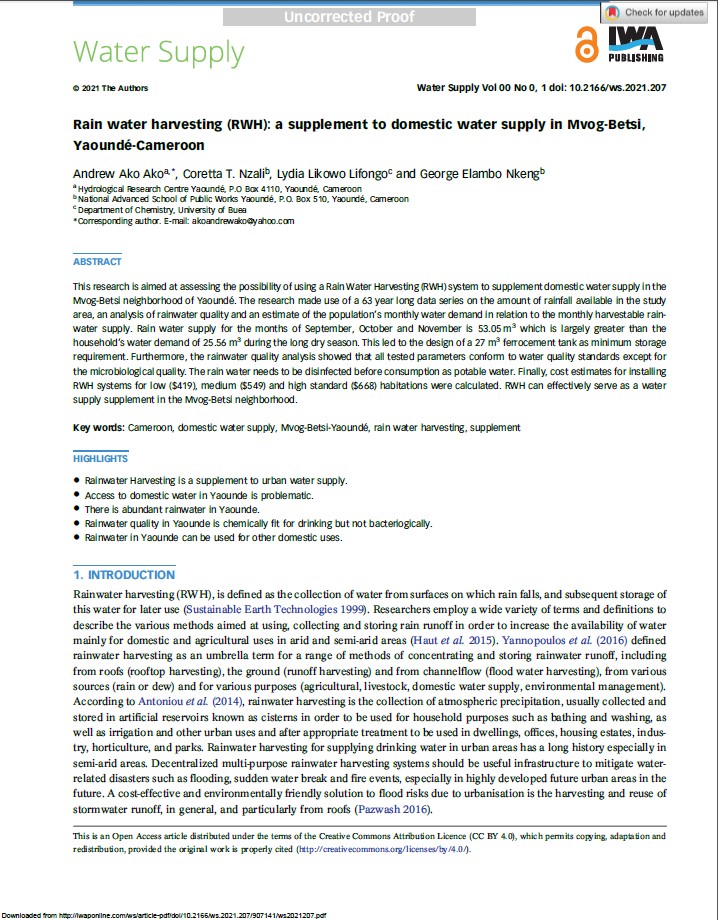Rain water harvesting (RWH): a supplement to domestic water supply in Mvog-Betsi, Yaoundé-Cameroon
 |
article Jan 2021 ; 14 pages
Aut.
Ed. IWA - London
Téléchargeable sous format: PdF
Téléchargeable chez l'éditeur
Abstract:
This research is aimed at assessing the possibility of using a Rain Water Harvesting (RWH) system to supplement domestic water supply in the Mvog-Betsi neighborhood of Yaoundé. The research made use of a 63 year long data series on the amount of rainfall available in the study area, an analysis of rainwater quality and an estimate of the population's monthly water demand in relation to the monthly harvestable rainwater supply. Rain water supply for the months of September, October and November is 53.05 m3 which is largely greater than the household's water demand of 25.56 m3 during the long dry season. This led to the design of a 27 m3 ferrocement tank as minimum storage requirement. Furthermore, the rainwater quality analysis showed that all tested parameters conform to water quality standards except for the microbiological quality. The rain water needs to be disinfected before consumption as potable water. Finally, cost estimates for installing RWH systems for low ($419), medium ($549) and high standard ($668) habitations were calculated. RWH can effectively serve as a water supply supplement in the Mvog-Betsi neighborhood.
Mot clef: |
Pays concerné: |
Editeur/Diffuseur: |
|
IWA
-
International Water Association - London - Royaume Uni |
En cas de lien brisé, nous le mentionner à communication@pseau.org